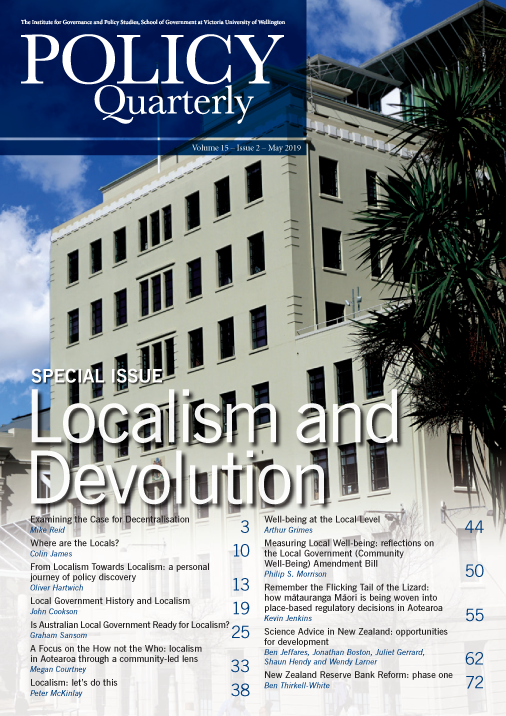Local Government History and Localism
DOI:
https://doi.org/10.26686/pq.v15i2.5365Keywords:
centralisation, self-government, counties, boroughs, infrastructure, municipalisationAbstract
The received view of state development in New Zealand is that the abolition of the ‘provincial system’ in 1876 set in motion the inexorable rise of centralised authority. The counter thesis presented in this article argues that until about 1940 central politicians, irrespective of party, were consistently engaged in empowering rather than diminishing local government. There was ultimate respect for the idea of local self-government; therefore, in colonial society, of local control of local development. This independence weakened only as technological change rendered ‘small’ local government increasingly inefficient and unable to meet new challenges and opportunities, particularly with respect to highways, housing and welfare.
Downloads
Downloads
Published
Issue
Section
License
Permission: In the interest of promoting debate and wider dissemination, the IGPS encourages use of all or part of the articles appearing in PQ, where there is no element of commercial gain. Appropriate acknowledgement of both author and source should be made in all cases. Please direct requests for permission to reprint articles from this publication to Policy-Quarterly@vuw.ac.nz.



